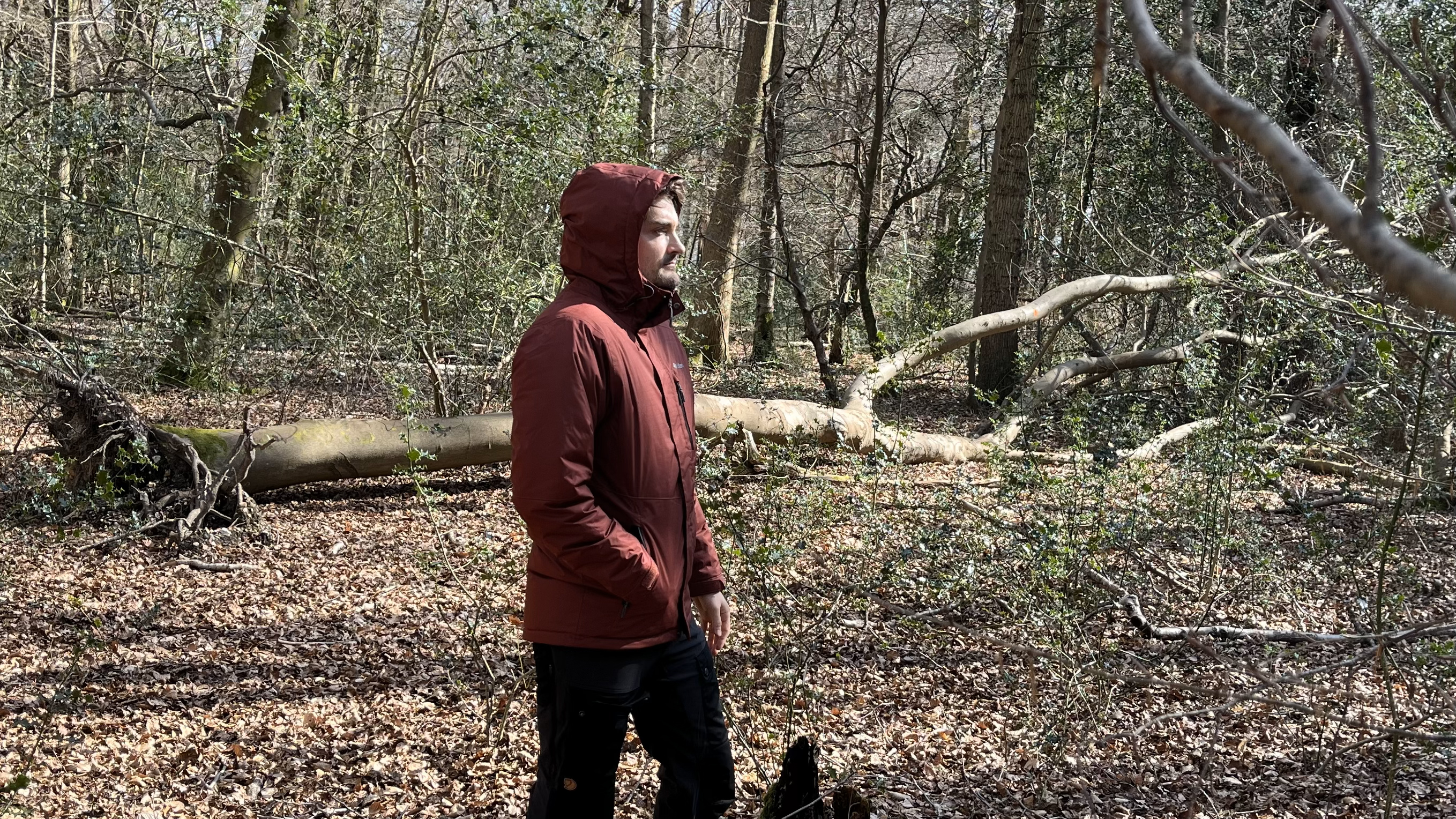Advnture Verdict
The Columbia Oak Harbor II is a winter-ready synthetic jacket that prioritises warmth and waterproofing over weight and packability. It’s not one for ultralight adventures, but if you’re after a reliable outer layer that handles rain, wind and cold without a fuss, this is a solid buy – especially at its frequent sale prices. Ideal for chilly hikes, wild camps and everyday winter wear, this is a jacket designed to be worn, not stashed in a pack.
Pros
- +
Very warm when paired with a mid-layer
- +
Excellent waterproofing in wet conditions
- +
Omni-Heat Infinity liner heats up quickly
- +
Fleece-lined hand pockets work brilliantly in the cold
- +
Good adjustability at the wrists, waist and hood
Cons
- -
Bulky and heavy
- -
Poor compressibility limits backpacking use
- -
Hood not helmet compatible
You can trust Advnture
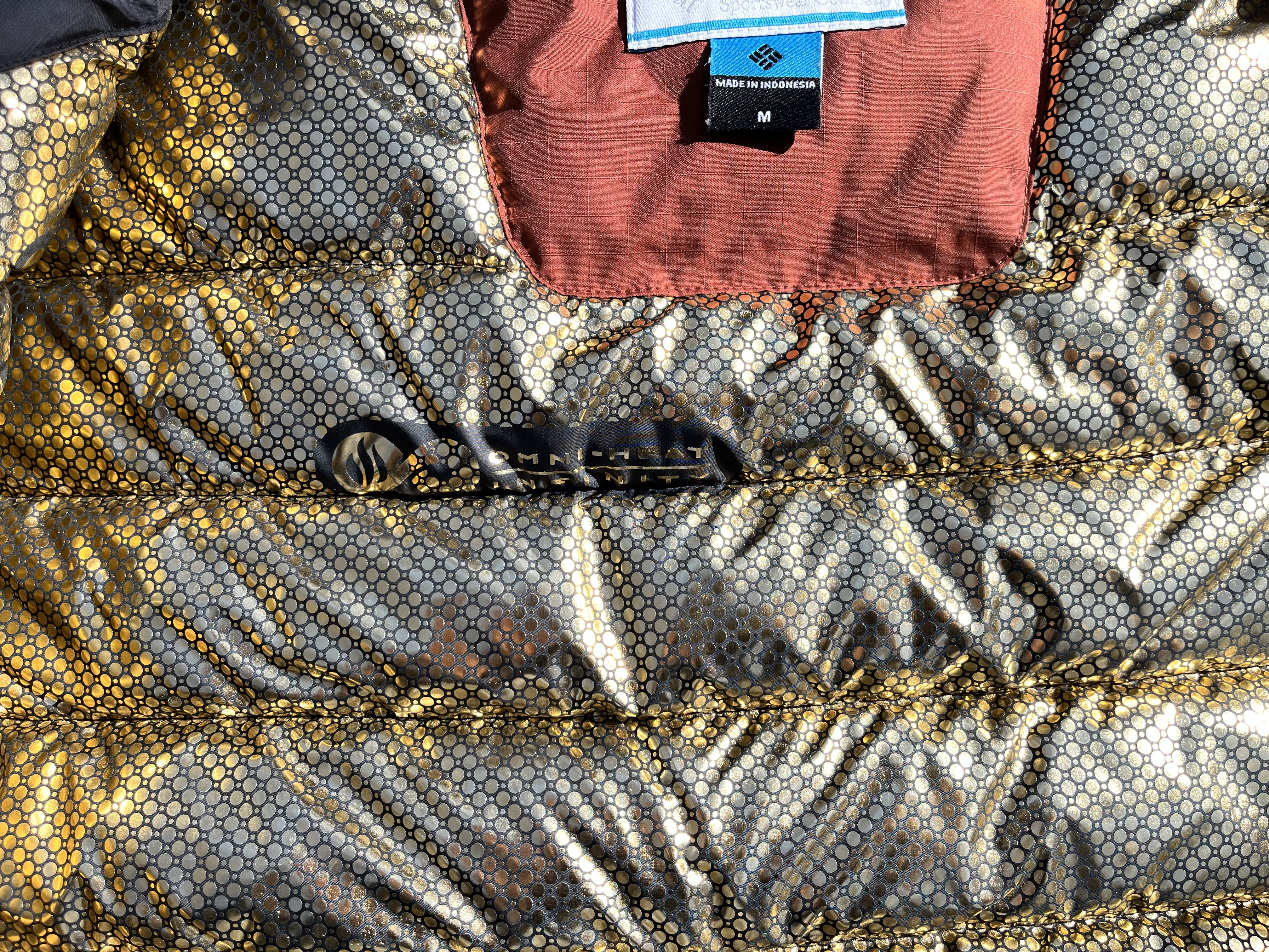
First impressions
Columbia has long built a reputation on making no-nonsense, hard-wearing outdoor gear – and the Oak Harbor II Insulated Jacket fits squarely into that ethos. It’s a robust, insulated, waterproof jacket, designed for cold-weather hiking and general winter use. It’s not ultralight, it’s not flashy, and it certainly doesn’t roll up to the size of a grapefruit. But it doesn’t need to.
• Price: $180 (US)/£180 (UK)
• Weight: Men's M: 2.1lb / 950g
• Sizes: S-XXL
• Fabric: 100% polyester shell, 100% polyester liner with Omni-Heat synthetic down made from 100% recycled polyester
• Colors: Spice / Black / Delta / Stone Green
At 2.1lb (950g) in a men’s medium, this is a jacket that you wear out the door knowing you’ll be in it all day. You’re not stuffing this in the bottom of your hiking backpack for emergencies – it’s too bulky for that. Pack size wise, it compresses down to something akin to a two-season synthetic sleeping bag, or a chunky four-season down bag. Could you take it wild camping or backpacking? Sure. But it’ll take up a noticeable chunk of your pack. That’s why this is a jacket best suited to being worn from the get-go, and mostly on day hikes.
It’s also not trying to be something it isn’t. The list price puts it firmly in the mid-range, and for what you get (solid waterproofing, decent insulation, and Columbia’s heat-reflective liner) it’s a respectable price point. Add in the fact that Columbia frequently discounts this jacket, and it starts to look like a bit of a bargain for anyone who needs a warm, weatherproof coat for cold hikes or everyday winter duties.
In the wild
I tested the Oak Harbor II over several weeks across a mix of chilly winter hikes and wildcamping trips in southern England. It came with me on brisk treks in the Chilterns, a long walk across the South Downs, and two wild nights under canvas in damp local woodland. The conditions ranged from crisp, dry 46°F (8°C) afternoons to just-above-freezing nights, with plenty of classic British drizzle thrown in for good measure.
Throughout all of it, the jacket performed reliably. It kept me dry on the move and stayed warm when I stopped, especially when layered over a decent midlayer. It’s not the sort of jacket you chuck on for 15 minutes at a time – it comes into its own when you’re wearing it for hours, adjusting the zips and toggles as the weather shifts. On uphill climbs, the main zip helped dump excess heat, and when the wind picked up, it was easy to cinch everything back down again to keep the warmth in. That versatility made it feel just as useful around camp as it did out on the trail.
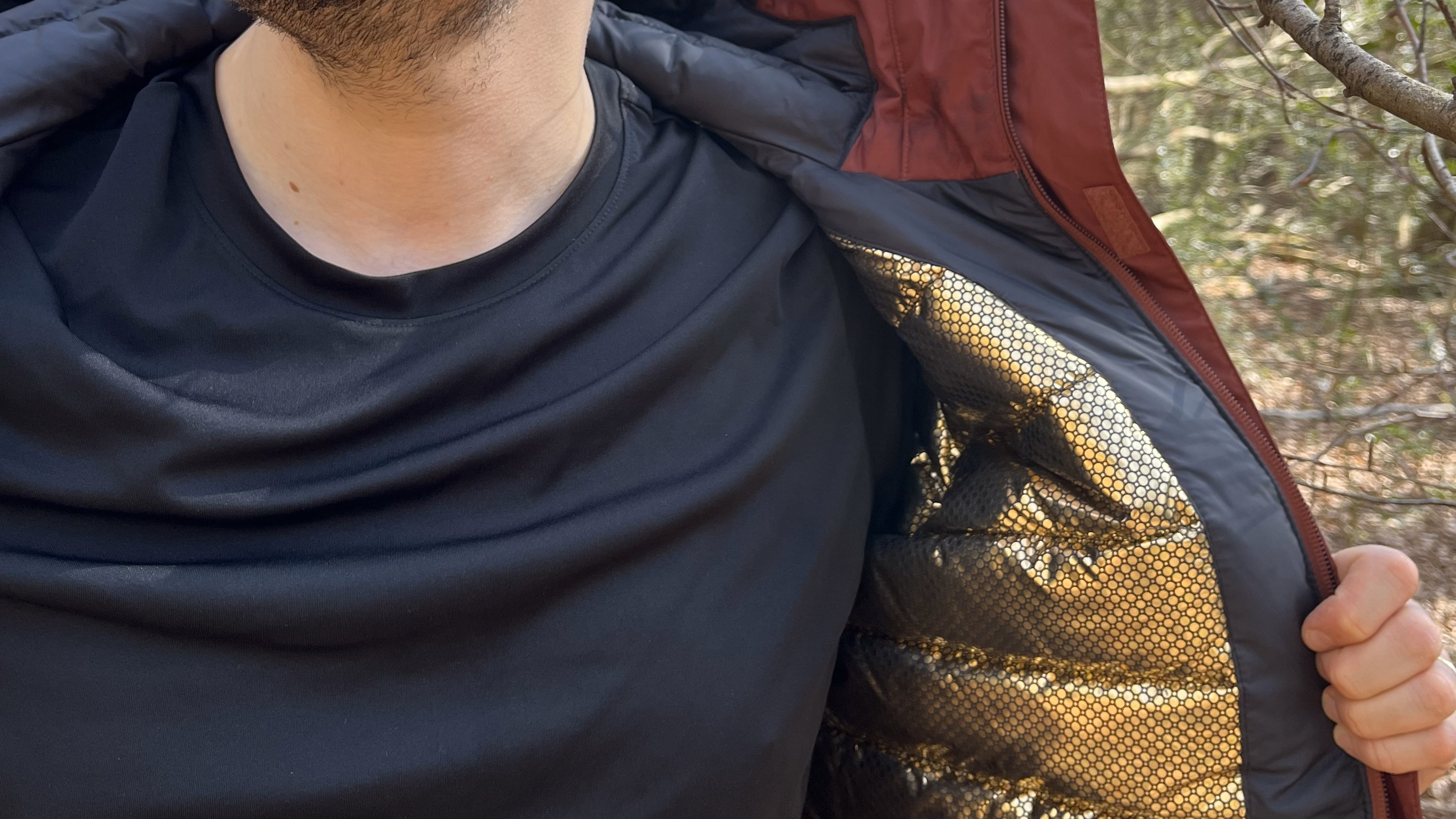
Features
There’s a lot going on with the Oak Harbor II, but the first thing that really stands out – both visually and in use – is the Omni-Heat Infinity liner. It’s a gold, foil-like material that lines the inside of the jacket, that was originally inspired by NASA's space blankets. But it’s not just for show. This stuff actually works. It reflects your body heat back at you, and because it’s focused around the torso – covering all your vital organs – it creates a bubble of warmth remarkably quickly. Even on a damp, cold hillside, I could feel the heat rebounding off it before the insulation itself had even caught up.
Now, it’s not down. It doesn’t puff up with immediate warmth in freezing temperatures. But for anyone who values that near-instant feeling of heat after a long climb or a cold lunch stop, it’s a game-changer – particularly when worn over a decent midlayer.
All the latest inspiration, tips and guides to help you plan your next Advnture!
Then there’s the waterproofing. I tested this jacket through multiple rainstorms, and it shrugged off most of what the British weather could throw at it. In really prolonged rain, yes, the outer fabric will wet out, and the hand pockets do eventually start to soak through – especially because they’re fleece-lined, which means they hold water. But I never felt cold or soggy underneath, and crucially, that chest pocket stayed dry throughout. When your phone or map lives in there, that matters.
The hood’s another win. It’s not helmet compatible, but it does everything else right. There’s a Velcro adjustment at the back and two pull cords around the chin, which means you can cinch it down properly when the wind picks up. Once tightened, it stays put – no flapping or slipping, even when turning your head – which made it genuinely useful in driving rain.
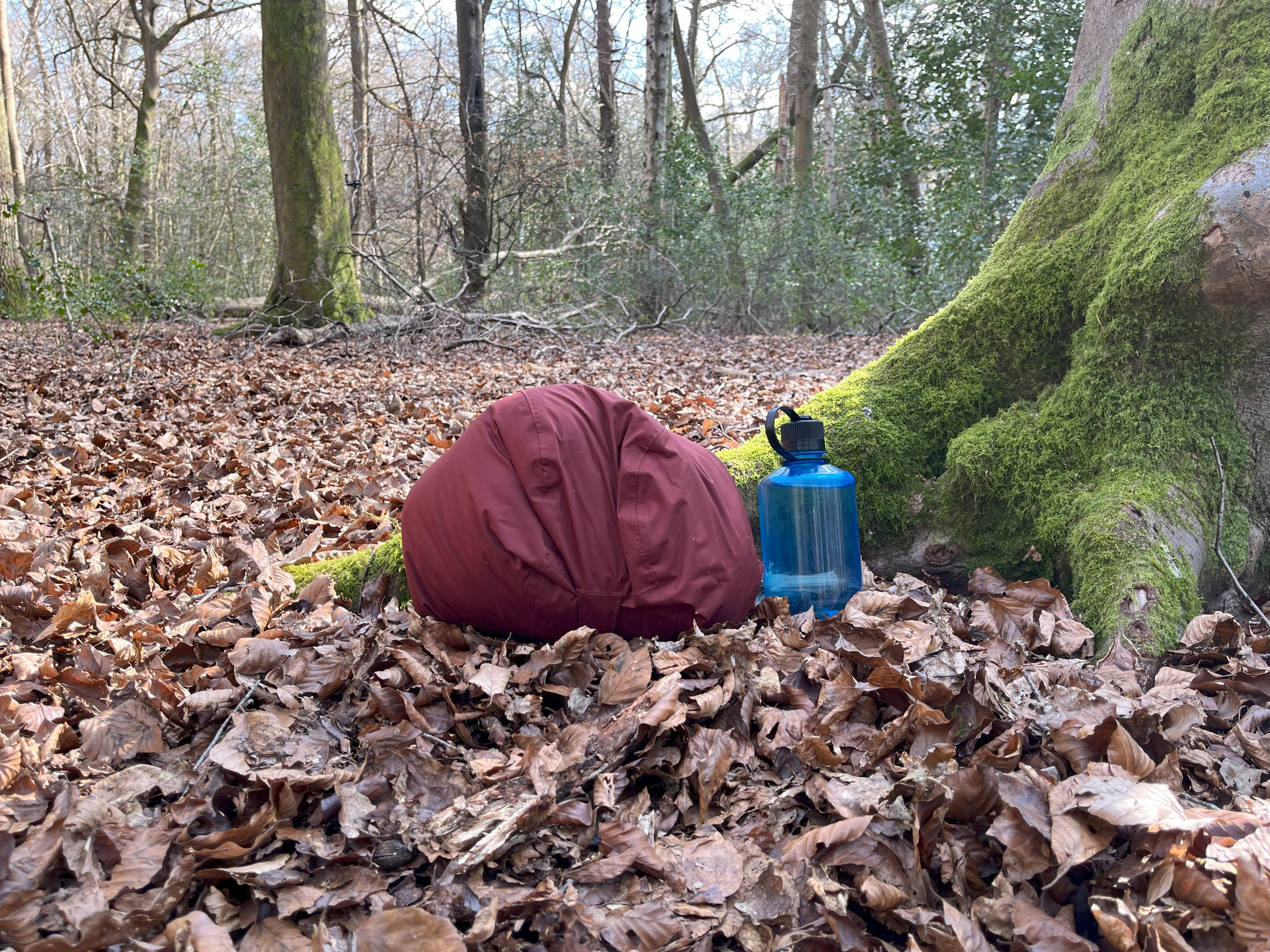
Columbia’s designers have made the jacket glove-friendly too. The wrist cuffs are thick and easy to grip with cold fingers or bulky hiking gloves, and they cinch tight to block out drafts. I found myself fiddling with them far less than with other winter jackets. Same goes for the hem adjustment – simple cord locks that you can use with numb hands and still trust to stay locked in place.
When it comes to storage options, the pockets on this thing are practical and well placed. There’s a roomy internal pocket for anything you want to keep secure and dry – wallet, phone, torch – and two big fleece-lined hand pockets that are an absolute joy when the temperature drops. Genuinely, those hand pockets do a better job at warming up icy fingers than most gloves. Just be aware: if it’s raining hard and you’re using them frequently, they will eventually soak through.
Lastly, the zippers. It might sound minor, but when a jacket’s zips are waterproof, reliable and refuse to snag – even in freezing wet conditions – it changes your whole experience. On one particularly grim day in the South Downs, with gusts ripping across the ridge and sleet blowing sideways, I was able to zip up fast, stay warm and carry on. No wrestling with sticky pulls or trying to realign zips with numb hands. Just simple, solid functionality that does exactly what it should.
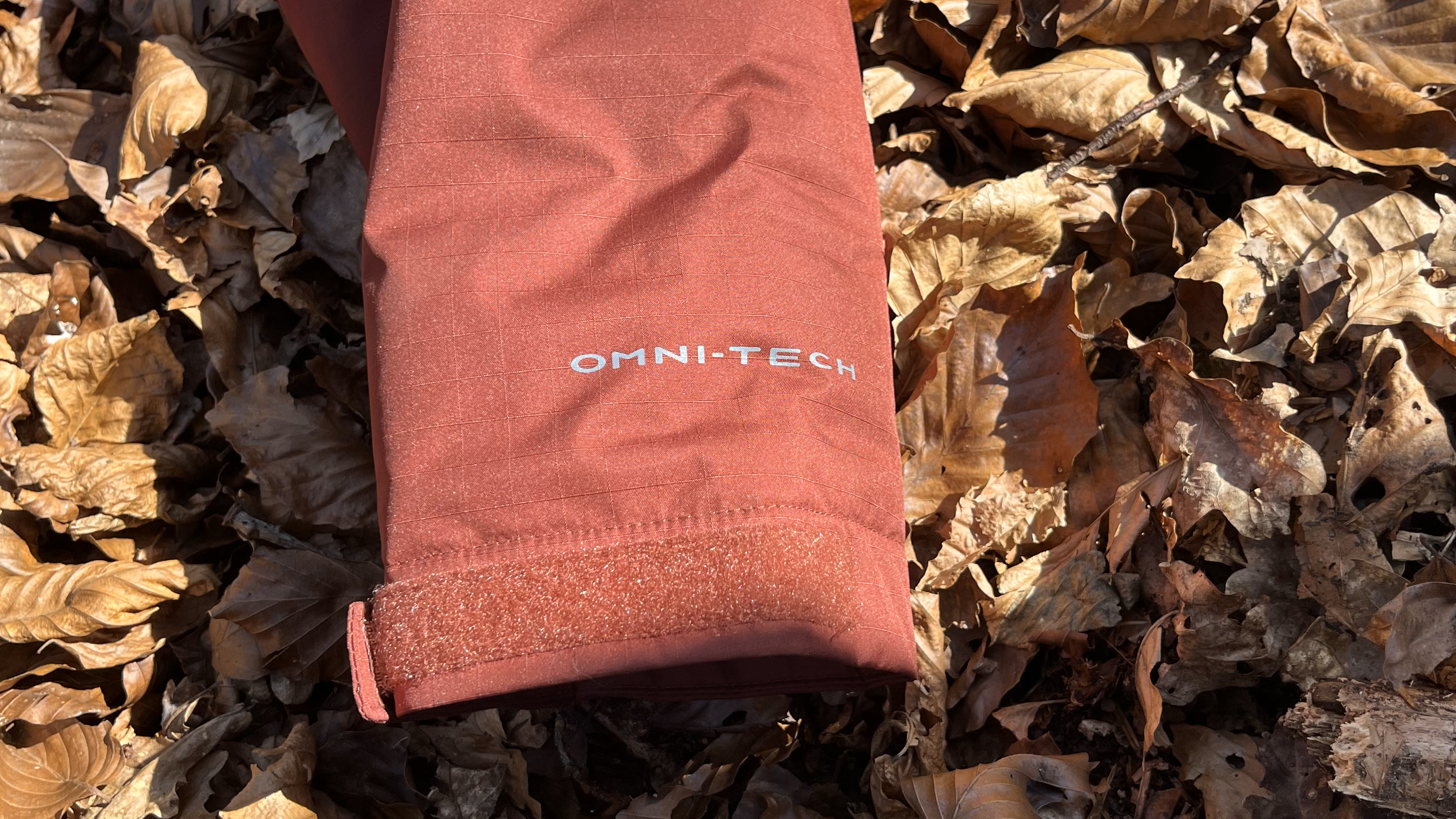
Durability
The Oak Harbor II isn’t trying to be the lightest or most technical jacket in your kit cupboard – but for cold-weather hikes, wild camps and winter days around town, it gets a lot right. The Omni-Heat Infinity liner genuinely makes a difference, helping you warm up quickly after periods of exertion. The waterproofing is dependable, and the features – from the fleece-lined hand pockets to the solid zip system – make it easy to wear all day in mixed conditions.
It’s certainly on the heavier side, and the pack size rules it out for gram-counting backpackers or alpine climbers. But for the rest of us – the walkers, the dog owners, the casual campers – it offers real value and functionality. Especially when you catch it in the sales.
Would I carry it on a thru-hike or a remote mountain trip? Probably not. But would I throw it on for a drizzly January hike or a frosty evening under the tarp? Absolutely. It keeps you warm, keeps you dry, and does so without needing much fuss or thought. For a winter jacket that you can trust to just work, the Oak Harbor II is well worth a look.
Also consider
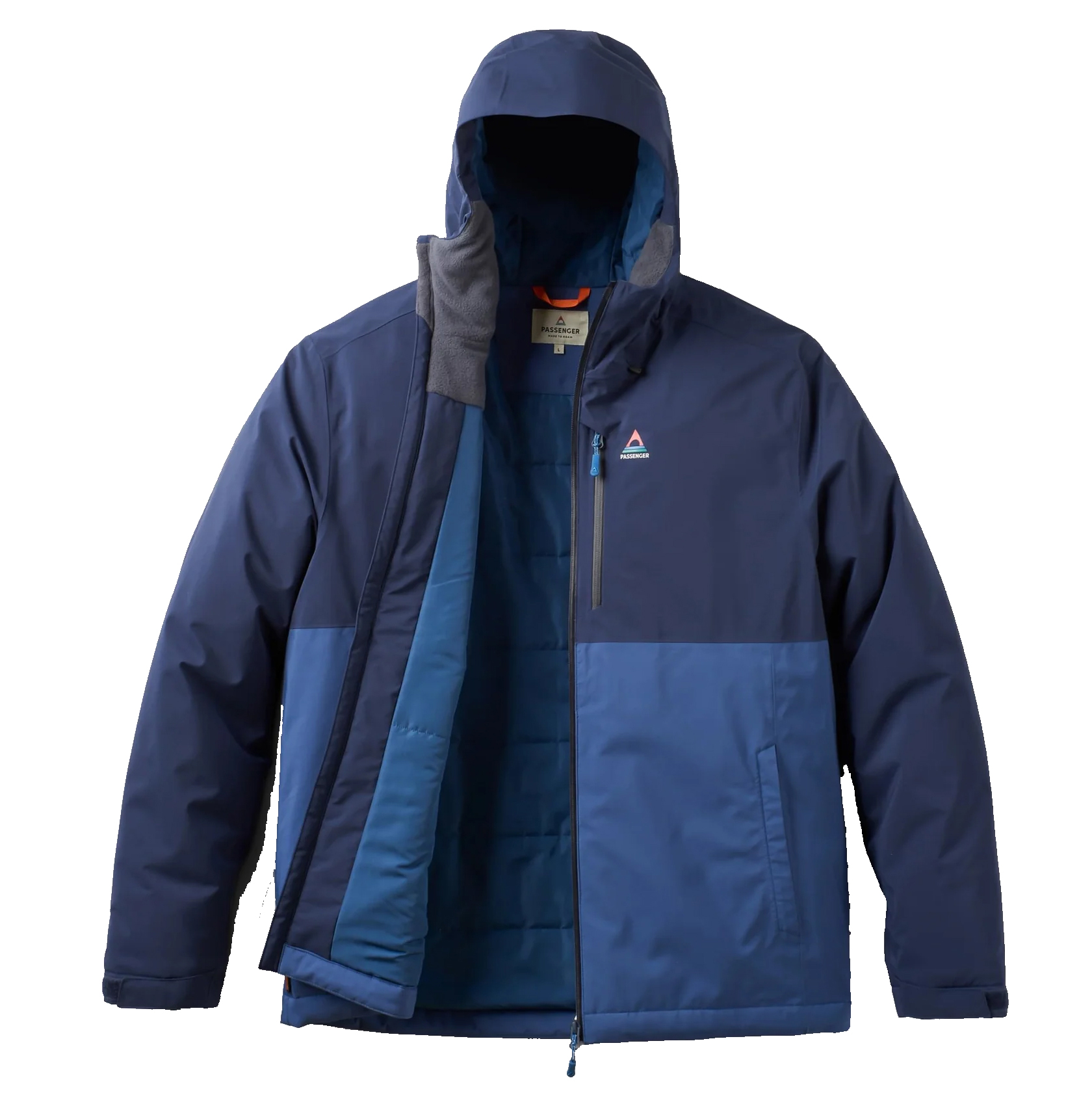
This is a good-looking jacket from an eco-conscious brand, providing both warmth and a decent level of protection against wind and rain. It’s too heavy and doesn’t offer the flexibility needed for active pursuits like hillwalking but this isn’t what it was designed for. If you want a stylish yet functional coat for general winter life, this is an option you can feel good about.
Read our full Passenger Eclipse Waterproof Insulated Jacket review
Pros
- Lovely, soft interior
- Very comfortable
- Recycled fabrics and insulation
- Four zippered pockets
- Great looking
Cons
- Sizing a bit large
- Insulation runs beneath hand warmer pockets
- Not for active pursuits
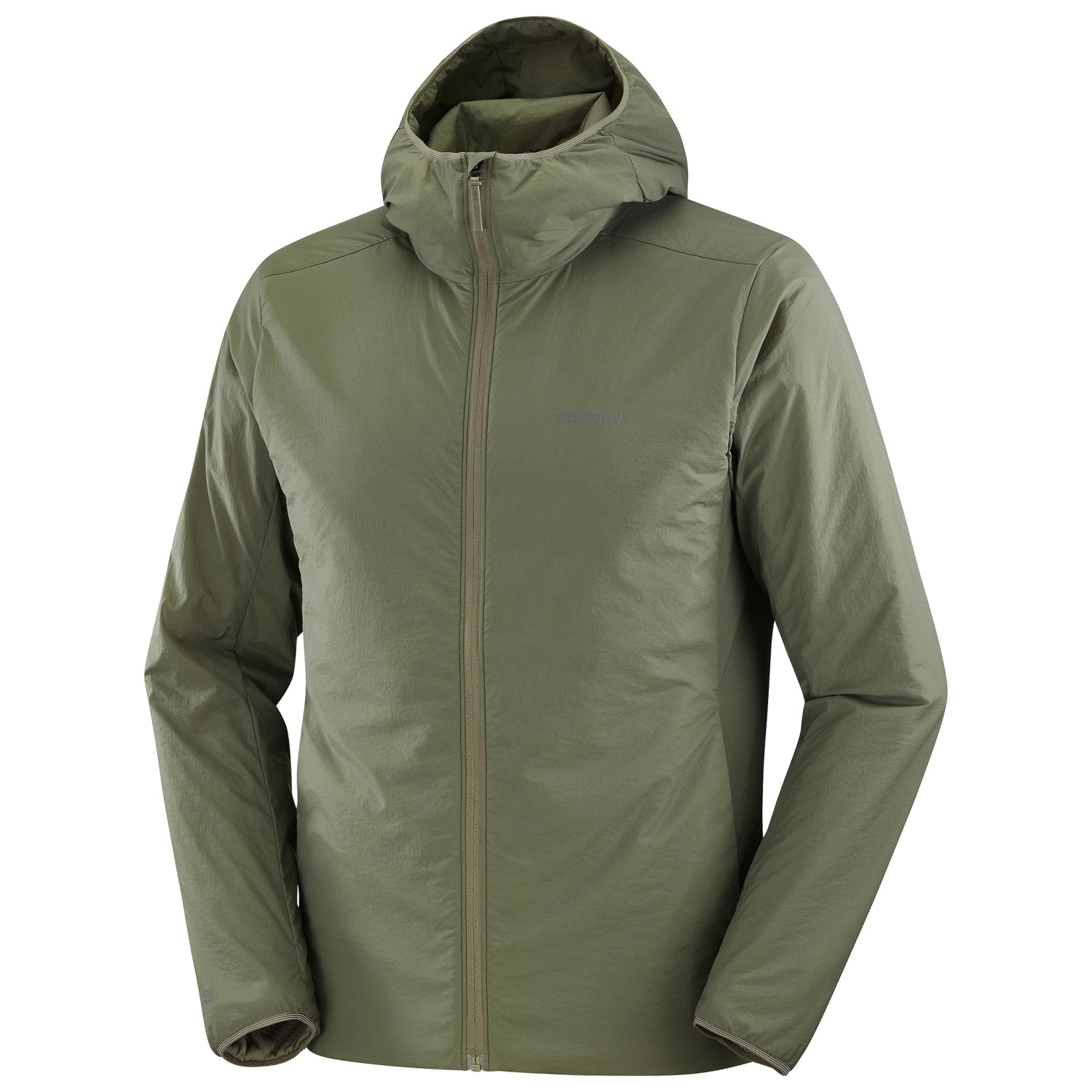
This is a fairly versatile insulated jacket that doesn’t try to show off. It’s a case of subtle qualities rather than out-and-out design flair. The jacket is comfortable, warm and well suited to everyday life, cold weather and shoulder season hikes in dry climates. Its regular fit, nondescript appearance and standard features don't bestow it with much charisma, despite its relatively high price point, but the advanced ventilation system is a plus, and the jacket performs well in the backcountry.
Read our full Salomon Mountain Flex Insulated Hooded Jacket review
Pros
- Nice mix of warmth and weight
- More breathable than a puffer
- Easy to use adjustment at hems and hood
- Provides decent freedom of movement
- Good zippered pockets
Cons
- Not ideal for wetter climates
- Lacking a certain flair
- Expensive for an insulated softshell
- No mention of recycled materials
Comparison table
Jacket | List price | Weight | Best use |
|---|---|---|---|
Columbia Oak Harbor II Insulated Waterproof Jacket | $180 (US) / £180 (UK) | 1lb 6oz / 635g | Easy winter walks and general life |
Passenger Eclipse Insulated Waterproof Jacket | $219.95 (US) / £179.95 (UK) | 1lb 6oz / 635g | Easy winter walks and general life |
Salomon Mountain Flex Insulated Jacket | $240 (US) / £240 (UK) | 1lb / 455g | Four-season hikes and everyday cold season wear |
Growing up just south of the glorious Brecon Beacons National Park, Craig spent his childhood walking uphill. As he got older, the hills got bigger, and his passion for spending quality time in the great outdoors only grew - falling in love with wild camping, long-distance hiking, bikepacking and fastpacking. Having recently returned to the UK after almost a decade in Germany, he now focuses on regular micro-adventures in nearby Snowdonia and the Brecon Beacons, as well as frequent trips to the Alps and beyond. You can follow his adventures over on komoot.
